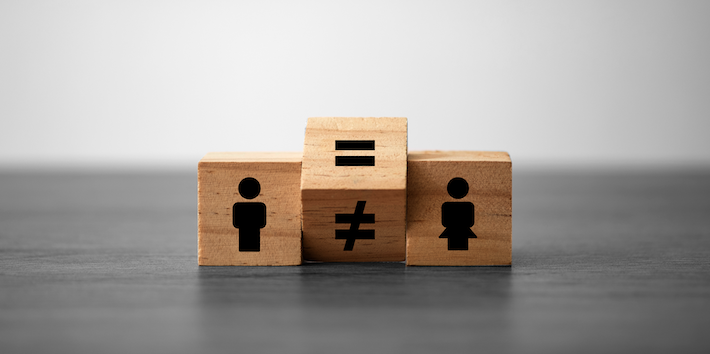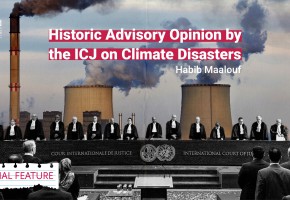
Do you promote Gender Equality? What about at the organizational level?
“All human beings are born free and equal in dignity and rights”
“Everyone is entitled to all the rights and freedoms set forth in this Declaration, without distinction of any kind, such as race, colour, sex, language, religion, … birth or other status.”
In 1948, the adoption of the Universal Declaration of Human Rights became a breakthrough for human rights. Gender equality became a part of international human rights law. Later in 1979 the Convention on the Elimination of All Forms of Discrimination against Women (CEDAW) was adopted, described as an international bill of rights of women. Ratifying and becoming party to these treaties and other international core human rights treaties and with their Constitutions, national laws and regulations, States’ duties to protect, promote and fulfill women’s rights are enshrined with a comprehensive legislative framework. However, we still stand far from achieving gender equality. It is evident that the legislative framework does not mean effective implementation, nor there has never been the genuine political will and inclusive processes towards change. A specific goal, SDG5, dedicated within the Agenda 2030, reaffirmed this gap and brought forward the universal commitment to achieving gender equality and empowering all women and girls. As in all injustices and inequalities, achieving SDG 5 requires adopting transformative and systemic changes; addressing structural inequalities and injustices women face at multilevel.
Gender injustices in the Arab region, as conflicts, wars, social injustices, economic failures, debt, unemployment cannot be simply taken for granted. They cannot be addressed with a set of programs and projects, short-term action plans designed solely for symptoms but not the root causes. Indeed, with reservations put on the international core human rights treaties and discriminative policies (tax, labor, nationality, ownership…etc.) in place, the region is not moving ahead in terms of gender equality; this is crystal clear.
Like in many other parts of the world, the countries of the region need comprehensive, rights-based national sustainable development plans. In these plans, women should be at the forefront; proactive in design, planning and implementation, as key agents of societal change. States, as the primary duty bearer play a key role in this regard, but the private sector and the civil society as key development actors have also significant roles and are accountable. Because achieving gender equality requires the commitment of all development actors.
Acknowledging this and committed to development effectiveness, in 2010 “Istanbul Principles” of CSO Development Effectiveness were adopted. These 8 principles set the basis for effective development work by CSOs. Principle 2 is dedicated to gender equality and calls CSOs to embody gender equality and equity while promoting women’s and girls’ rights: “CSOs are effective as development actors when they … promote and practice development cooperation embodying gender equity, reflecting women’s concerns and experiences, while supporting women’s efforts to realize their individual and collective rights, participating as fully empowered actors in the development process”.
Writing this newsletter item on March 8th celebrating the International Women’s Day, I am proud to be part of the Arab NGO Network for Development, a regional network committed to Istanbul Principles, that monitors and implements all CSO development effectiveness principles. But what does ANND do in this regard? First of all, the implementation of Principle 2 is interlinked to the other principles, initially to the first principle, namely respecting and promoting human rights and social justice. Addressing inequalities remain at the core of the work of ANND on the new development paradigm. The very understanding that no one should be left behind, thus ensuring gender equality and equity is at the center of this work. ANND argues that gender equality cannot be a mere byproduct of certain policies; cannot focus on numerical goals only. As such, ANND stresses the need for moving from mainstreaming gender equality in the development agenda towards achieving social and gender justice as central to the new development paradigm. This approach is adopted both at regional activities and within the activities of ANND members- among whom there are many feminist organizations. Back in 2010, during the peoples movements in the region, “no revolutions no equality” was highlighted by them as well as the need to struggle for a framework that ensures the rights and equality, inclusiveness and gender justice as a basis for re-design of these economic and social policies. In 2020 with the COVID-19 pandemic, ANND focused on exacerbated inequalities and violations faced by the women in the region. For example, ANND’s Tunisian member the Tunisian Association of Democratic Women (ATFD) began to publish on various topics of concern to women related to the quarantine; launched a national campaign to combat violence against women. Likewise, bi-annually published Arab Watch Reports research sheds light on ways in which gender discrimination and under-representation intersect with socio-economic, cultural and political factors to maintain the unjust reality facing women in the region. At the activity level- ANND programs, research, capacity-building, dialogue and advocacy are all participatory, engaging women rights groups and civil society organizations working on gender equality. On the other hand, at its institutional level, ANND integrates promoting gender equality in its strategy, but also has a Gender Policy, reflecting its accountability towards achieving it. Accordingly, ANND advocates policies that eliminate discrimination against women in all spheres (economic, social, political, and cultural) and therefore the realization of equal human rights for women. Furthermore, ANND works towards the increase in women’s participation in decision-making both in private and public institutions, which can ensure women-led concrete actions to change policies and enhance women’s access to resources. Organizational practices and policies that promote gender equality, ensure equal opportunity in recruitment, protect women against harassment and discrimination, and guarantee accountability in cases of violation are implemented as well.
The struggle for gender equality is a not easy, but is at the center of achieving sustainable development, peace and stability. CSOs design, plan and implement programs and projects towards this end promoting gender equality and this should be also at organizational level. Last but not least, they should shift from a mere protective position to a proactive role towards providing alternative policy reforms ensuring equality, non-discrimination and overcoming the patriarchal mentality and traditions.
Bihter Moschini
Recent publications

